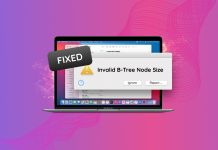![]()
This week, information was made public revealing that ISPs are actually misrepresenting the amount of bandwidth consumed by video streaming services like Netflix. In recent years, ISPs have been reporting Netflix’s use of bandwidth as being substantially higher than it actually has been, accusing the online video company of consuming a whopping 30% of all internet traffic.
Telecoms have been steadily losing cable and satellite TV subscribers to Netflix and other internet video sites. The companies make a very large profit margin when their customers purchase TV packages, forcing them into agreements involving far more channels and shows than they’ll ever want, let alone watch.
The data claiming that Netflix consumes as much as a third of the internet’s total traffic during peak hours was shown to be so flawed that Fortune magazine ran a story with the sole purpose of debunking the claim.
As they say, you can make numbers say anything, and it appears the ISPs have done just that. In reality, Netflix’ traffic only consumes the stated 30% of total internet traffic in the last mile or so before it reaches the user’s home. This is the last stretch of network between the last routing station and the neighborhood that the user lives in. So, the vast majority of the telecommunications networks’ pipelines are not being consumed by Netflix traffic at all.
However, it is in the best interest of the networks (as opposed to you, the users) to portray Netflix traffic as being as high as possible. This is because they would like to turn home internet service into a metered, monitored, and controlled network, in much the same way that they have done with mobile data. Just like you may be limited to 2GB or 5GB of data on your smartphone per month (and get charged overage fees if you exceed the allotted amount), the telecoms want to see you live in a world where you are only granted as much data as they grant you each month. They want to set this limit as low as 150GB per month.
This is an obvious problem because many Netflix users use more than 40GB each month on streaming video alone. If you download games, software updates, or iTunes or Amazon rentals, you are consuming several more gigabytes each month on top of that. It’s easy to see how you could use much more data than they want to give you in the space of a month. The telecoms want to be able to charge you as much as they want for that data, and thereby penalize you for using the internet access you already paid for.
What is the end game, you ask? That is a good question. The bottom line is, the telecoms you buy your internet service from want you to be so limited with what you do online that you are forced to purchase a separate or bundled TV package with your internet. This would push their profit margins upwards, and keep you, their customer, locked into an outmoded, draconian business model from yesteryear — indefinitely.
Article Via IT World






